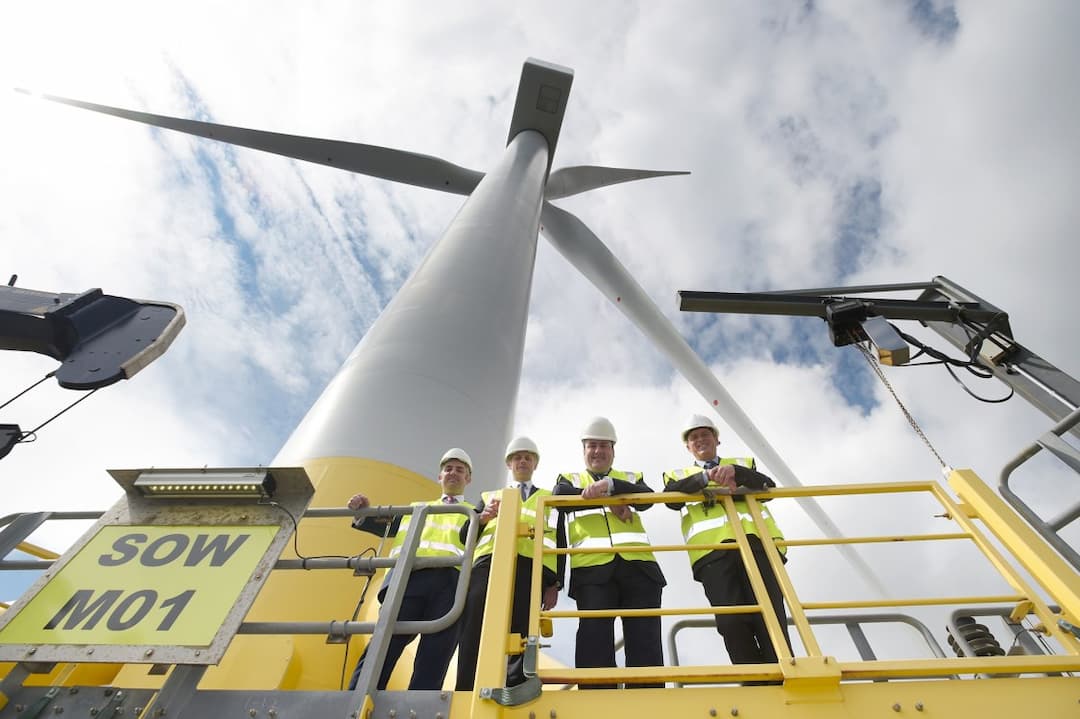A flagship technology innovation and research centre has announced a £920,000 programme to advance offshore wind research in Scotland, based around its world-leading Levenmouth Demonstration Turbine.
The Offshore Renewable Energy (ORE) Catapult’s Fife facility is already a demonstration hub for businesses across the UK to test their designs on a next-generation 7 Megawatt (MW) offshore wind turbine. The new programme will increase access for those businesses and enable them to take advantage of the Catapult’s expertise and its industry and academic partnerships. It will also fund the establishment of a lidar (laser-based radar) test facility, and facilitate the creation of a ‘virtual windfarm’.
The investment should give Scottish companies a crucial edge in developing technology and services for the new wave of offshore wind developments.
The Scottish Government is providing £460,000 of funding, which is being matched by ORE Catapult.
Welcoming the announcement, Scottish Government Minister for Business, Innovation and Energy, Paul Wheelhouse, said:
“This investment is another demonstration of the Scottish Government’s long-standing commitment to maximising the huge potential of offshore wind as a sustainable energy source.
“The £460k funding represents excellent value, as it goes to three projects that are key to ORE Catapult’s plans to bolster wind technology development in Scotland.
“This, of course, builds on our recent investment for the Offshore Wind Accelerator programme, and last years’ grant support for ORE Catapult.
“It’s becoming increasingly clear that offshore wind is integral to Scotland’s sustainable energy future – as well as helping us to achieve our ambitious climate change targets.”
Chris Hill, ORE Catapult’s Operational Performance Director, said:
“The Levenmouth Turbine offers an unrivalled opportunity to position Scotland and the UK at the heart of European wind research.
“Providing a unique testing environment for new technologies, and using real-world data from the operation of the turbine, will help us develop a deeper understanding of the operations and maintenance aspects of offshore wind turbines. This will significantly help to develop the skills and experience that is critical to the future growth of the industry and its continuing efforts to reduce costs.”
The virtual wind farm will be created using operational data from the Levenmouth Turbine, delivering a unique platform for the dissemination of research, data and findings to Scotland’s industry and academic research communities, which could then be further developed by adding new research and datasets as they become available. This will help to increase understanding of how offshore wind farms work, and how to make them more efficient.
The research programme has the support of industry, with Wood Group – clean energy having a particular interest in lidar verification and testing.
Alan Mortimer from Wood Group’s clean energy business added:
“Replacing on-site met masts with lidar and floating lidar technologies can significantly reduce development and operational costs. We are keen to see the testing and validation of these technologies accelerated to improve their industry uptake. Using the Levenmouth Turbine to do this will ensure Scotland plays a central role in the development of this vital technology.”


